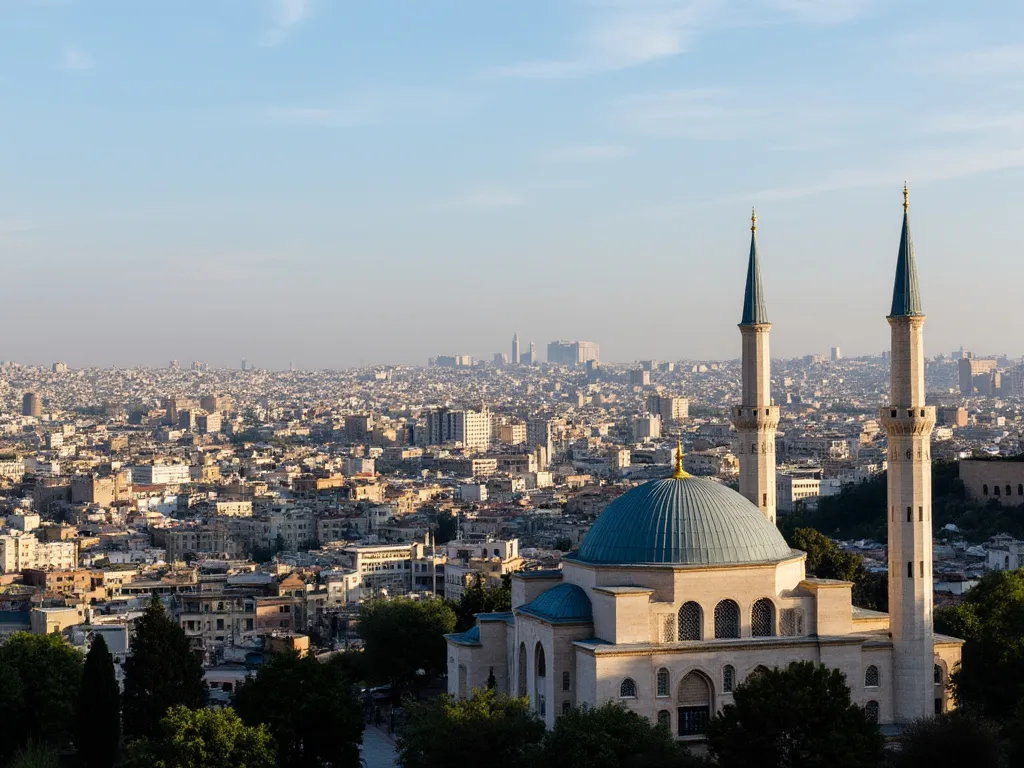
Damascus is the capital city of Syria and is considered one of the oldest continuously inhabited cities in the world. Strategically located on the River Barada, the city has been a center of commerce, culture, and politics for centuries.
Damascus Information
| Country | 🇸🇾 Syria |
| City Population | 2,100,000 |
| City Coordinates | 33°30′47″N 36°17′31″E |
| City Area | 1,200 km² (460 sq mi) |
| Climate | Hot-summer Mediterranean climate (Köppen climate classification Csa) |
| Language | Arabic (official), English (widely spoken) |
| Currency | Syrian pound (SYP) |
| Time zone | EET (UTC+2), EEST (UTC+3) |
| Proximity to other major cities | Beirut, Lebanon (85 km / 53 mi), Amman, Jordan (190 km / 118 mi), Tel Aviv, Israel (270 km / 168 mi) |
Historical Background of Damascus
The history of Damascus dates back to the 3rd millennium BC, making it one of the oldest cities in the world. The city has been ruled by various empires and dynasties, including the Aramaic, Assyrian, Persian, Greek, Roman, and Arab. Damascus was a major center of Christianity during the Byzantine era and was later conquered by the Rashidun Caliphate in 635 AD.
Geographical Location of Damascus
Damascus is situated in the southwestern part of Syria, about 80 km (50 mi) east of the Lebanese border. The city is nestled in the Ghouta Oasis, a fertile region surrounded by the Anti-Lebanon Mountains to the east and the Qalamun Mountains to the west. The River Barada, which runs through the city, provides water and fertile land for agriculture.
Cultural Significance of Damascus
Damascus has a rich cultural heritage, with a blend of Arab, Islamic, and Mediterranean influences. The city is home to numerous historical landmarks, including the Umayyad Mosque, the Saladin Citadel, and the Tomb of Saladin. Damascus is also famous for its traditional crafts, such as woodworking, weaving, and soap making.
Economic Importance of Damascus
Damascus is the economic hub of Syria, with a diverse economy that includes industries such as textiles, food processing, and pharmaceuticals. The city is also a major center for trade and commerce, with a strategic location that connects Europe, Asia, and Africa.
Interesting Facts About Damascus
- Damascus is considered one of the oldest continuously inhabited cities in the world.
- The city has been ruled by over 16 different empires and dynasties.
- Damascus is home to the oldest mosque in the world, the Umayyad Mosque.
- The city has a unique calendar, which dates back to the Islamic calendar.
Tourist Attractions in Damascus
- Umayyad Mosque
- Saladin Citadel
- Tomb of Saladin
- National Museum of Damascus
- Damascus Opera House
Conclusion on Damascus
Damascus is a city that perfectly blends history, culture, and natural beauty. With its rich heritage, unique traditions, and warm hospitality, the city is a must-visit destination for anyone interested in exploring the Middle East. From its ancient landmarks to its vibrant markets, Damascus has something to offer for every kind of traveler.
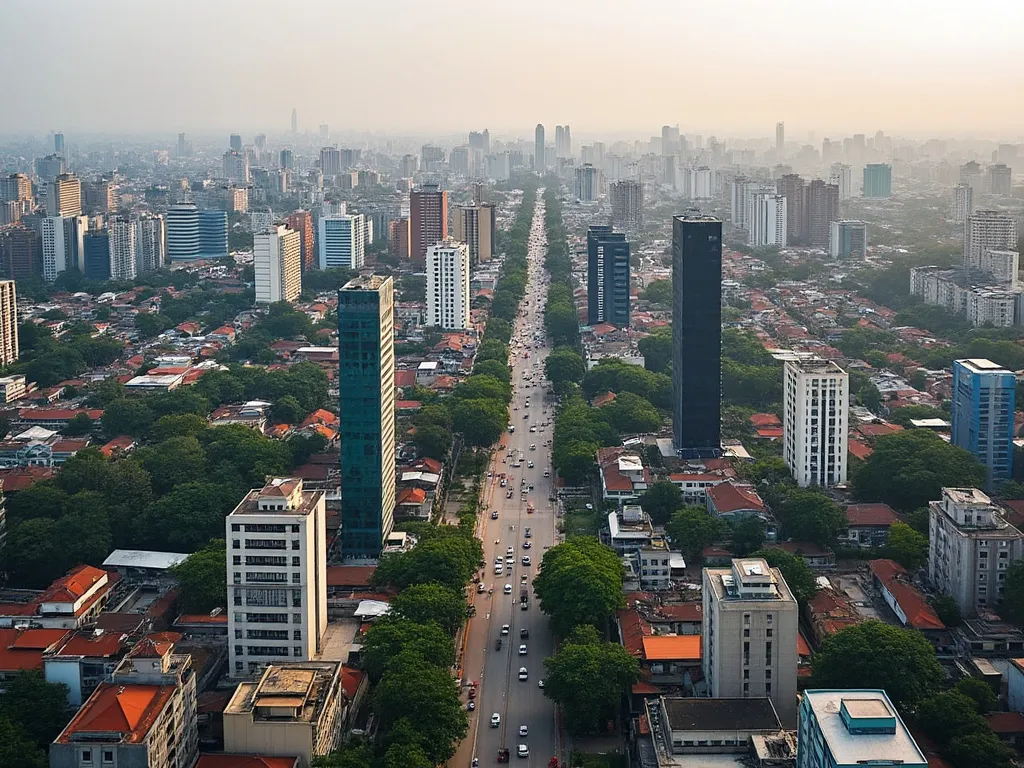 Dhaka
Dhaka
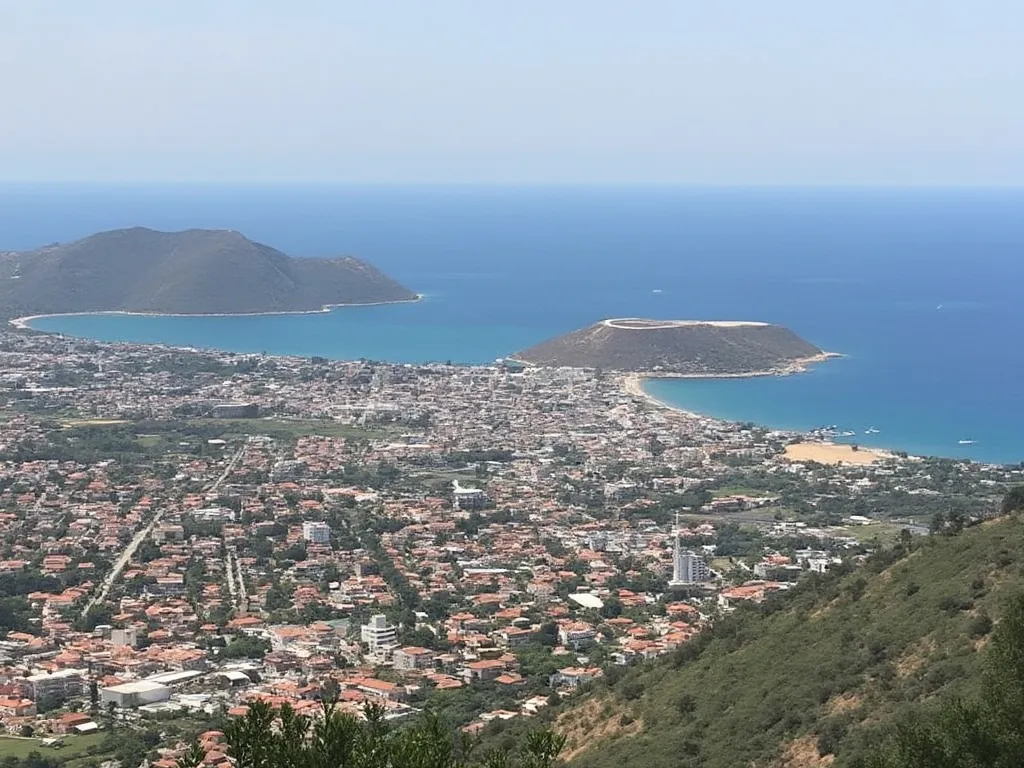 Dili
Dili
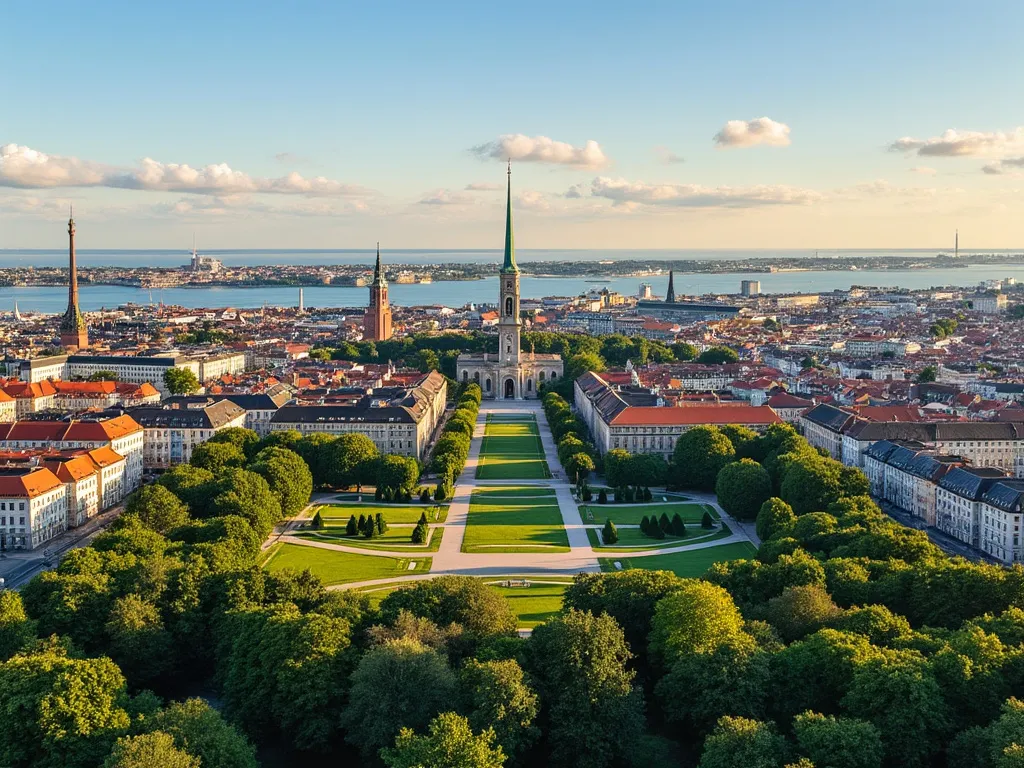 Copenhagen
Copenhagen
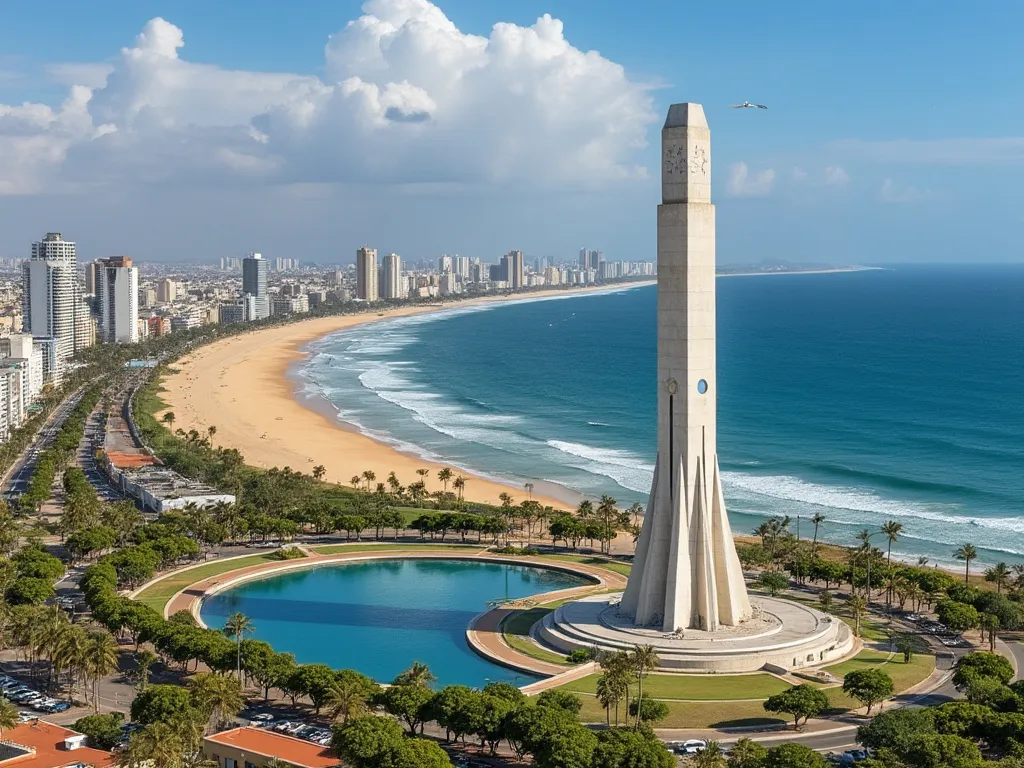 Dakar
Dakar